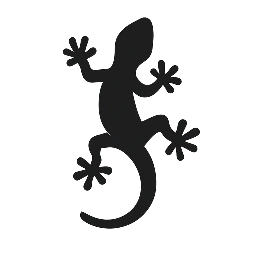A Block in the System: A Guide to Preventing Impaction in Your Bearded Dragon
As bearded dragon owners, we spend a lot of time focused on the inputs—the perfect salad, the gut-loaded insects, the correct supplements. But paying attention to the outputs is just as critical. A healthy digestive system is the engine of a healthy dragon, and one of the most serious and common threats to that system is impaction.
Impaction is a frightening word in the reptile community, but thankfully, it’s almost entirely preventable with the right knowledge and husbandry. Let’s explore what impaction is, what causes it, and how you can ensure your scaly friend’s system keeps running smoothly.
What is Impaction?
In the simplest terms, impaction is a blockage in the digestive tract. It occurs when a bearded dragon ingests something it cannot digest, or when its digestive system is not functioning properly, causing a buildup of food or foreign material. This mass becomes stuck, preventing the dragon from passing any waste.
This isn’t just a case of simple constipation. The blockage can put pressure on the dragon’s spine and internal organs, leading to pain, nutrient malabsorption, nerve damage, and, if left untreated, it can be fatal.
Signs and Symptoms of Impaction:
- No Bowel Movements: A lack of feces for several days, especially for a younger dragon, is a primary red flag.
- Lethargy: The dragon is inactive, weak, and spends all its time hiding.
- Loss of Appetite: Complete refusal to eat.
- Bloating: The abdomen may appear swollen, firm, or hard to the touch.
- Straining: You may see the dragon attempting to defecate with no success.
- Weakness or Paralysis of Hind Legs: This is a critical sign. The blockage can press on the spinal cord, causing loss of function in the back legs. This is a veterinary emergency.
The Main Culprits: Common Causes of Impaction
Impaction doesn’t happen randomly. It’s almost always a direct result of one or more specific husbandry issues.
- Improper Substrate: This is the number one cause. Loose substrates like calcium sand (which clumps when wet), walnut shells, wood chips, or pebbles are often accidentally ingested. Since they are indigestible, they can easily form a blockage.
- Food is Too Large: The golden rule of feeding is to never offer an insect larger than the space between your dragon’s eyes. Food that is too big is difficult to break down and can get lodged in the gut.
- Incorrect Temperatures: This is a huge, often-overlooked cause. Bearded dragons are cold-blooded and rely on external heat to digest their food. If their basking spot is too cool, their metabolism slows down, and food can begin to rot and ferment in the gut instead of being digested, leading to a blockage.
- Dehydration: A lack of proper hydration makes it harder for waste to move through the digestive tract, increasing the risk of a traffic jam.
- Overfeeding Hard-Shelled Insects: Insects with very hard exoskeletons, like superworms and mealworms, can be difficult for juvenile dragons to digest and should only be fed as part of a varied diet to adults.
Your Prevention Playbook: How to Avoid Impaction
Keeping your dragon’s gut healthy is all about being proactive. Here are the most effective steps you can take:
- Choose a Safe Substrate: Especially for juveniles, solid substrates are the safest choice. Paper towels, slate tile, or reptile carpet are excellent options that carry zero risk of ingestion. For experienced keepers with healthy, adult dragons, a bioactive mix of organic topsoil and playsand can be used, as it’s less likely to cause impaction than commercial sand products.
- Offer Appropriate-Sized Prey: Always follow the “space between the eyes” rule for all insects. If you have to question if an insect is too big, it probably is.
- Dial In Your Temperatures: Use a digital probe thermometer or an infrared temp gun to ensure your temperatures are perfect. The basking spot surface temperature should be between 95−110°F (35−43°C) for a healthy adult. This heat is non-negotiable for proper digestion.
- Keep Them Hydrated: Always provide a shallow, clean bowl of fresh water. Regular warm baths (2-3 times a week) are a fantastic way to encourage drinking and help them stay hydrated. Misting their daily salads is another great trick.
- Feed a Varied, High-Fiber Diet: A healthy diet of gut-loaded insects and fiber-rich greens (like collard or dandelion greens) promotes good gut motility and helps keep things moving.
What to Do if You Suspect Impaction
If your dragon hasn’t pooped in a few days but is otherwise acting normally, the first step is a warm bath.
- Give a Warm Bath: Fill a tub just deep enough to cover your dragon’s hips (never their head). The water should be comfortably warm, around 90−95°F (32−35°C).
- Gently Massage: While your dragon is in the bath, gently massage its belly in a downward motion towards the vent. This can help stimulate the muscles needed for a bowel movement.
Let them soak for 15-20 minutes. Often, this is all that’s needed to resolve a minor case of constipation.
However, if your dragon shows any severe symptoms like lethargy, bloating, or weakness in the hind legs, skip the bath and call your exotic vet immediately. A vet can take an X-ray to confirm the blockage and provide medical intervention, such as an enema or, in dire cases, surgery.
Here in Kansas City, as the seasons change and we prepare for the cooler months, it’s the perfect time to give our indoor reptile habitats a thorough review. By ensuring your husbandry is flawless, you can protect your bearded dragon from the serious threat of impaction and ensure it stays happy and healthy for years to come.

Leave a Reply